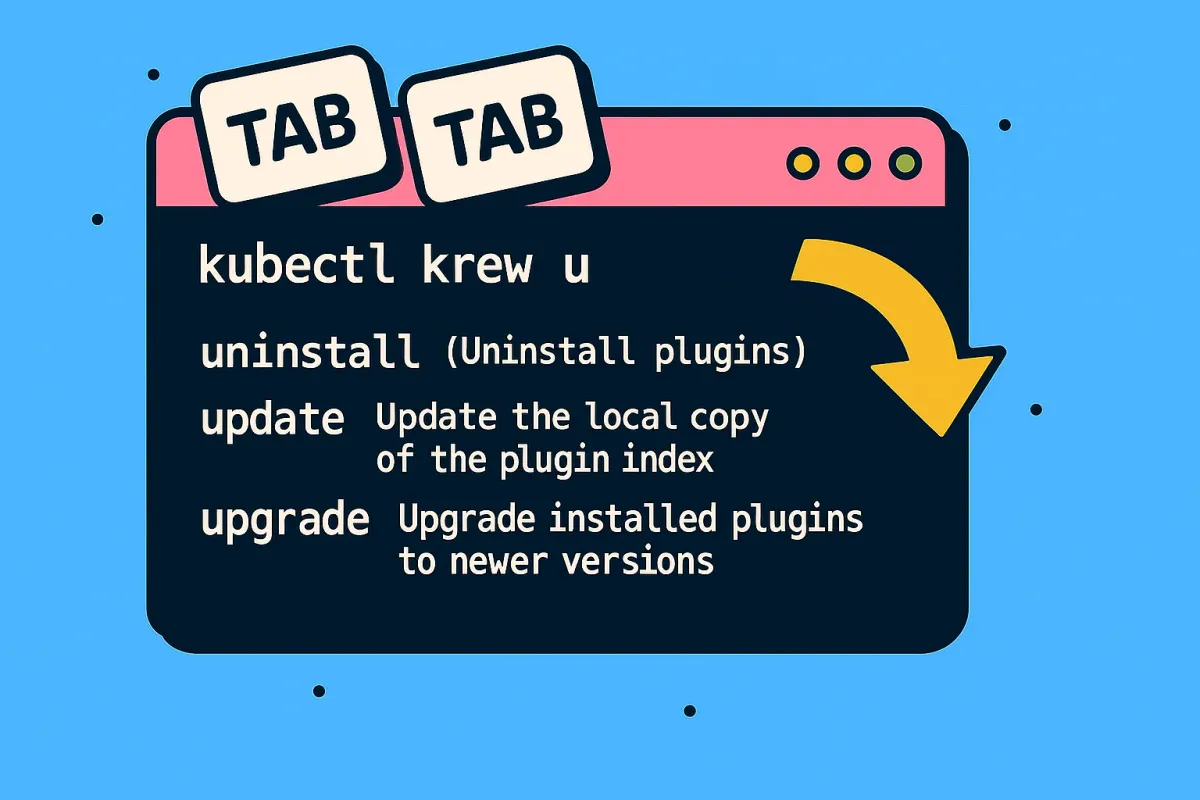Completing kubectl Plugins
Learn how to configure shell completion for your plugins and boost your productivity with easy auto-complete!

If you are familiar with using kubectl plugins, you may also know the frustration when your muscle memory kicks in and you hit [TAB] [TAB]—only to get a list of files in the directory instead of the commands you expected.
Let’s fix this: here’s how to configure shell completion for your plugin commands.
The __complete Command Convention
When a user requests completion for a plugin (e.g., by typing kubectl some-plugin [TAB]), kubectl does not handle the completion itself. Instead, it executes the plugin binary with a special first argument: __complete.
The plugin is then responsible for inspecting the subsequent arguments and printing a list of possible completion suggestions to standard output, one suggestion per line.
You can test this behavior using the following command, which uses the krew plugin as an example.
kubectl krew __complete u
uninstall Uninstall plugins
update Update the local copy of the plugin index
upgrade Upgrade installed plugins to newer versions
:4
Completion ended with directive: ShellCompDirectiveNoFileComp
Setup Completion Directory For Plugins
Create the completion directory
install -d ~/.config/.kubectl-plugin-completionsmkdir fan, use mkdir -p instead of install -d.Append completions directory to $PATH
$PATH.For Bash Users:
echo 'export PATH=$PATH:~/.config/.kubectl-plugin-completions' >> ~/.bashrcFor ZSH Users:
echo 'export PATH=$PATH:~/.config/.kubectl-plugin-completions' >> ~/.zshrcFor Fish Users:
fish_add_path ~/.config/.kubectl-plugin-completionsConfigure Plugin Completion Script
PLUGIN variable to the name of the plugin before executing the script.PLUGIN=krew
COMPLETION_SCRIPT="${HOME}/.config/.kubectl-plugin-completions/kubectl_complete-${PLUGIN}"
cat >"${COMPLETION_SCRIPT}" <<EOF
#!/usr/bin/env sh
# Call the plugin's __complete command, passing it all of the shell's
# completion arguments. kubectl will route the request to the correct plugin.
kubectl "${PLUGIN}" __complete "\$@"
EOFThis script creates a kubectl_complete-krew (the suffix is the plugin name) file in the completion directory you created.
Testing Completion
The following example uses tab completion for the krew plugin.
kubectl krew
help (Help about any command)
index (Manage custom plugin indexes)
info (Show information about an available plugin)
install (Install kubectl plugins)
list (List installed kubectl plugins)
search (Discover kubectl plugins)
uninstall (Uninstall plugins)
update (Update the local copy of the plugin index)
upgrade (Upgrade installed plugins to newer versions)
version (Show krew version and diagnostics)
Voilà 🎉—your muscle memory can work as expected, without surprises!



